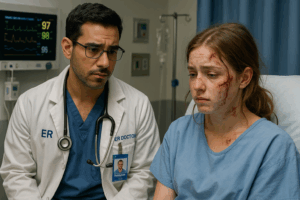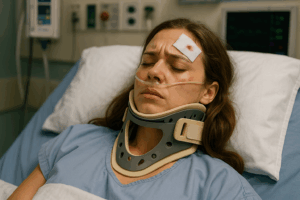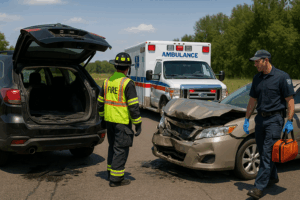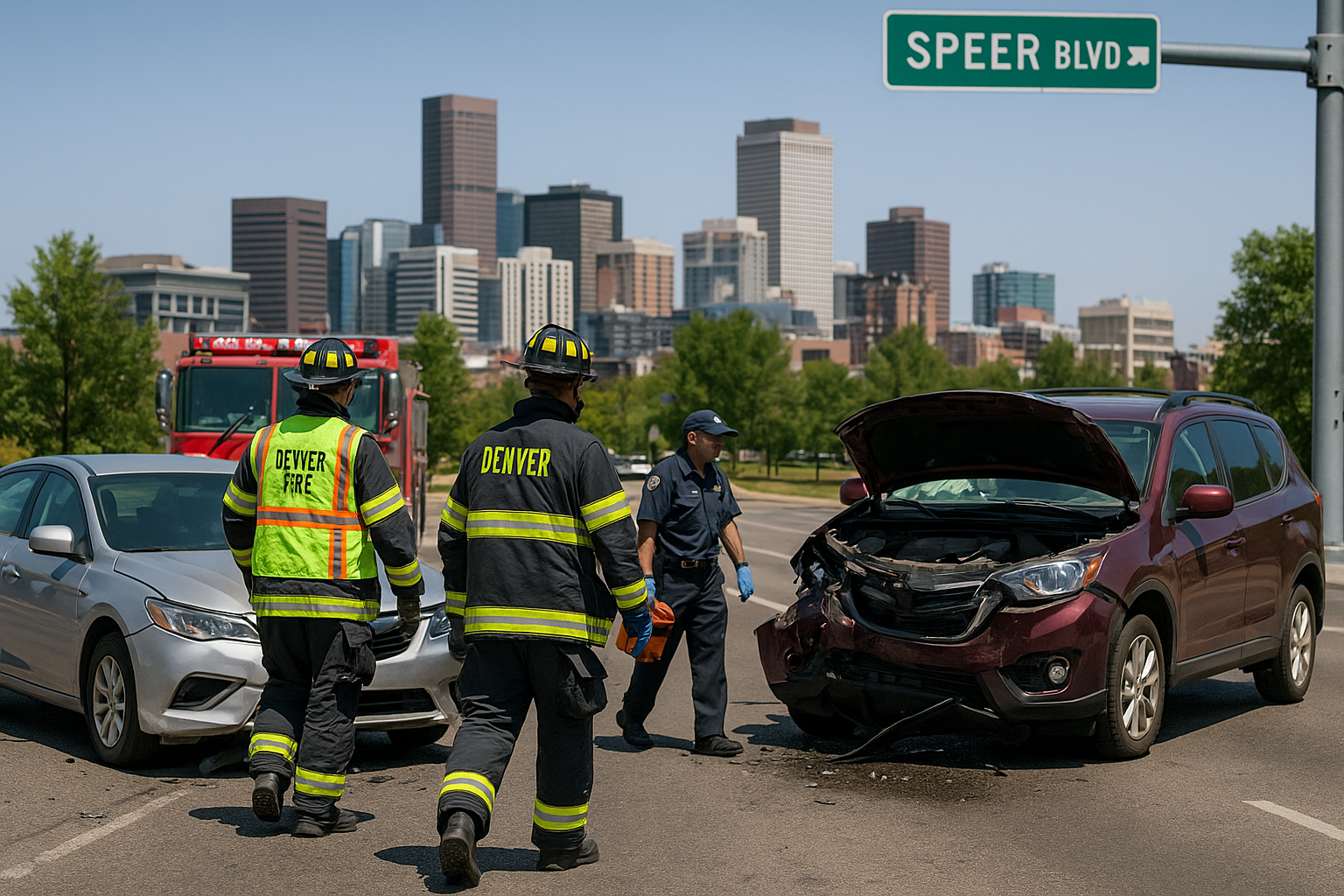What to Do After a Car Accident in Denver (2025 Guide)
Denver car accident? Follow these steps to protect your health, preserve evidence, and maximize your claim. Free consultation: (720) 743‑5046.

1) First things first: safety & 911
- Move to a safe location if possible; turn on hazards.
- Call 911 for injury, suspected impairment, or unsafe scenes.
- Don’t admit fault—stick to facts.
- Snap a quick scene photo before vehicles are moved if safe.

2) Call the police & get a case number (Denver)
Ask the responding officer for the case number. If police don’t respond (minor incidents), you can still file or obtain documentation later. Keep the case number with your claim file.

3) Collect evidence like a pro
- Photos: damage (all angles), road, weather, skid marks, traffic signals, plates, VINs.
- Exchange info: names, phone/email, insurance, driver’s license, policy number.
- Witnesses: get names and numbers immediately.
- Notes: what each driver said, time, location, direction of travel.
- Video: save dash‑cam; request nearby business camera footage.
Helpful guides: Denver Car Accident Lawyers · Denver Catastrophic Injury Lawyer · Truck Accident Lawyer · Motorcycle Accident Lawyers
4) Get medical care (even if you feel “fine”)
Adrenaline masks injuries. See urgent care or your doctor within 24–48 hours and follow treatment. Gaps in care hurt both your health and your claim.
5) Notify insurers—without hurting your claim
Colorado is an at‑fault state. You can pursue the at‑fault driver’s insurance for your losses. Give your insurer basic notice, but avoid recorded statements to the other driver’s insurer until you speak with an attorney.
6) Colorado deadlines you can’t miss
- Injury claims from motor‑vehicle crashes: generally 3 years to file suit in Colorado.
- Most other personal injury claims: generally 2 years.
- Government entities: written notice typically due within 182 days of discovering the injury.
7) Special situations
Hit‑and‑run / uninsured driver
Report to police and your insurer promptly. Your UM/UIM coverage may apply.
Rideshare (Uber/Lyft)
Coverage depends on the driver’s app status. Capture trip screenshots and report details.
Government vehicles
Track the vehicle/equipment number and follow the 182‑day written notice requirement.
Commercial trucks
Preserve ECM/black‑box data, driver logs, and maintenance records. An attorney can send a spoliation letter to secure evidence.
8) How compensation works in Colorado
Recoverable damages may include medical bills, lost wages, diminished earning capacity, pain & suffering, property damage, loss of use, and diminished value.
9) When to call a lawyer
- Injuries, hospital transport, or delayed symptoms.
- Disputed fault, multiple vehicles, or a commercial truck involved.
- The adjuster requests a recorded statement or broad medical authorizations.
- Rideshare or government vehicle issues.
Free consultation (24/7): (720) 743‑5046 · Message us
Related services: Car Accident Lawyers · Truck Accidents · Motorcycle Accidents
10) Free checklist & next steps
Download our one‑page Denver Car Accident Checklist (print or save on your phone).



